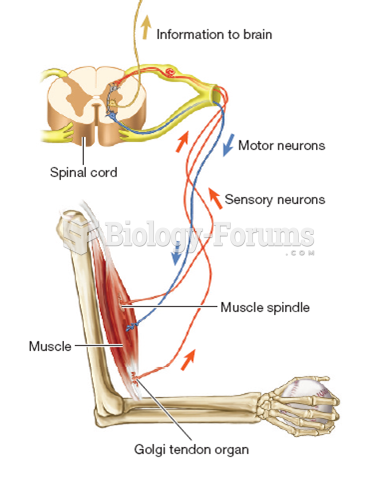|
|
|
More than 34,000 trademarked medication names and more than 10,000 generic medication names are in use in the United States.
The eye muscles are the most active muscles in the whole body. The external muscles that move the eyes are the strongest muscles in the human body for the job they have to do. They are 100 times more powerful than they need to be.
To maintain good kidney function, you should drink at least 3 quarts of water daily. Water dilutes urine and helps prevent concentrations of salts and minerals that can lead to kidney stone formation. Chronic dehydration is a major contributor to the development of kidney stones.
In 1835 it was discovered that a disease of silkworms known as muscardine could be transferred from one silkworm to another, and was caused by a fungus.
Barbituric acid, the base material of barbiturates, was first synthesized in 1863 by Adolph von Bayer. His company later went on to synthesize aspirin for the first time, and Bayer aspirin is still a popular brand today.
 Medicinal leeches on a patient’s neck. Today leeches are sometimes used in microsurgery to prevent b
Medicinal leeches on a patient’s neck. Today leeches are sometimes used in microsurgery to prevent b
 A farmer with a pitchfork, wearing a hat identifying him as a Granger, warns of an oncoming “Consoli
A farmer with a pitchfork, wearing a hat identifying him as a Granger, warns of an oncoming “Consoli





